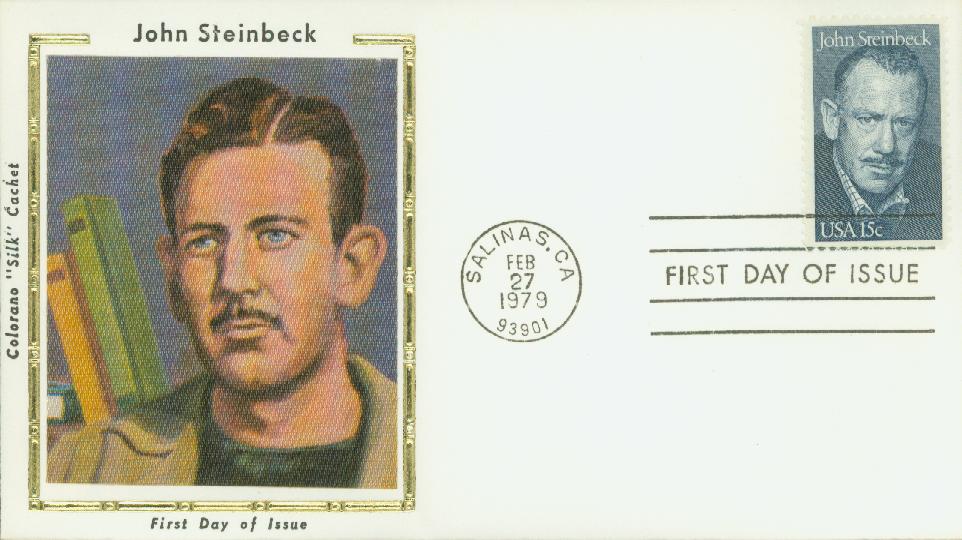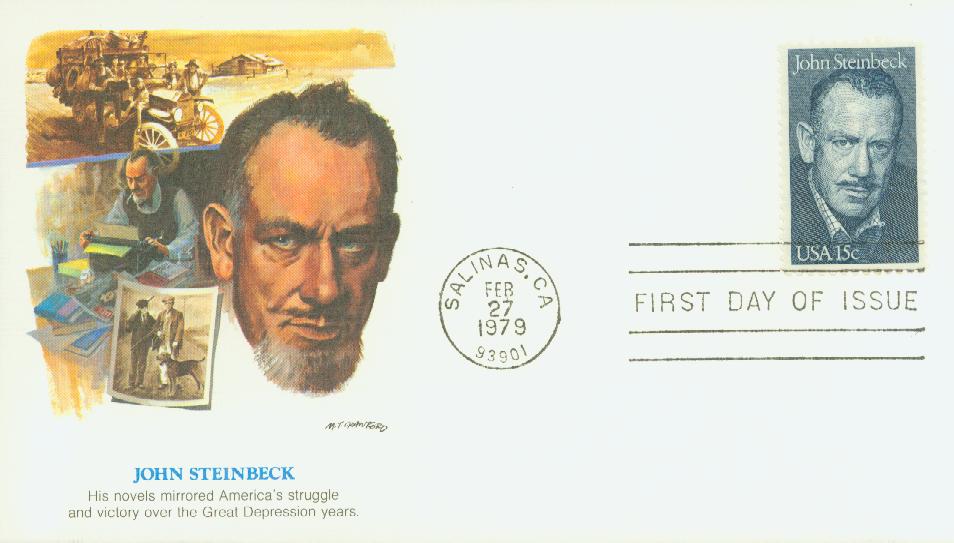Acclaimed author John Steinbeck was born on February 27, 1902, in Salinas, California.
Raised in a small rural town, Steinbeck grew up with a great appreciation for the land. He spent his summers working on ranches and on beet farms with migrant workers, providing experiences that deeply influenced his later writing. Reportedly, Steinbeck decided to become a writer at age 14, at which point he frequently locked himself in his room to write poems and stories. After graduating from high school in 1919, Steinbeck went to Stanford University to study English Literature. He attended the school on and off for six years, finally leaving for good in 1925.
Steinbeck then moved to New York City to find work as a freelance writer, while also doing odd jobs to pay the bills. Unable to making a living as a writer, he returned to California and took a job as a tour guide and caretaker at Lake Tahoe. It was there he met his first wife, Carol Henning. After failed attempts at selling plaster mannequins, they moved closer to Steinbeck’s parents, who gave them a place to live and loans that allowed John to write without needing another job.
In 1929, Steinbeck published his first novel, Cup of Gold, based loosely on privateer Henry Morgan. He wrote a handful of stories in the next few years but found his first major success in 1935 with Tortilla Flat, which won the California Commonwealth Club’s Gold Medal. Steinbeck was able to build a house with the proceeds from this book.
Following that success, Steinbeck wrote a series of “California Novels” about life in the Dust Bowl during the Great Depression. These included In Dubious Battle, Of Mice and Men and The Grapes of Wrath. Of Mice and Men was critically acclaimed and quickly turned into a stage production and then a movie. He based The Grapes of Wrath on a series of newspaper articles he’d written about migrant workers in San Francisco. Though it won the Pulitzer Prize and was the best-selling book of 1939, it was controversial, particularly in his California community. Some believed it misrepresented the conditions there and it was banned from local libraries for two years.
Steinbeck joined the war effort in 1943 when he took a job as a correspondent for the New York Herald Tribune. In that role, he followed Douglas Fairbanks, Jr.’s Beach Jumpers on their mission against German forces in the Mediterranean. Steinbeck even joined the action, helping to capture Italian and German prisoners. His wartime writing was later made into a documentary, Once There Was a War.
Returning from the war wounded and homesick, Steinbeck threw himself back into writing. Several books and movies came out of his post-war years, including Lifeboat, A Medal for Benny, Cannery Row, The Pearl, and A Russian Journal. In 1952, he published what he considered his greatest work, East of Eden, which later served as James Dean’s film debut.
Steinbeck published his final novel in 1961 – The Winter of Our Discontent. Though the book was not as popular as his earlier works, Steinbeck received the Nobel Prize for literature the following year. He also received the Presidential Medal of Freedom in 1964. After a brief time in Vietnam writing for Newsday magazine, Steinbeck returned to America. He died in New York City on December 20, 1968.
Discover what else happened on This Day in History.






Not mentioned in Mystic’s eulogy is perhaps Steinbeck’s last offering. In early 1960s. John Steinbeck compiled a ‘travelog’ as he crossed USA with his dog in a camper van recounting anecdotes he collected on the way talking with people from various communities. He then published a book titled “Travels with Charley” which perhaps was the most delightful (lightheaded) of his phenomenal literary opus. GdR
Everyone should read East of Eden. It is a great novel!
John Steinbeck has always been one of my favorite authors. Happy birthday, Mr. Steinbeck! May you RIP. 🙂
The Grapes of Wrath is such a wonderful book . It is also relevant for today when it comes to migrants and immigrants.